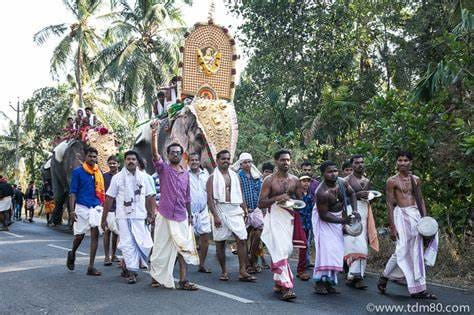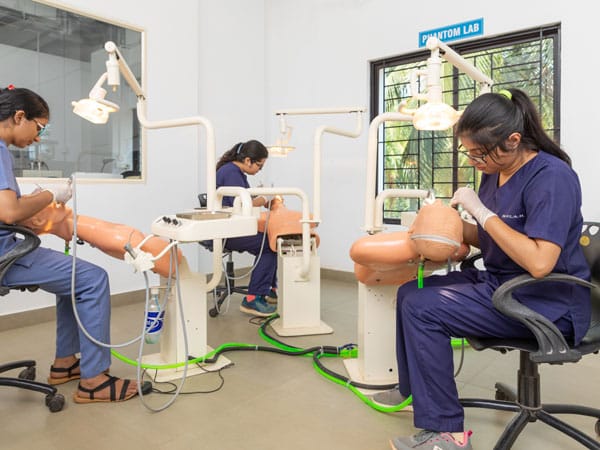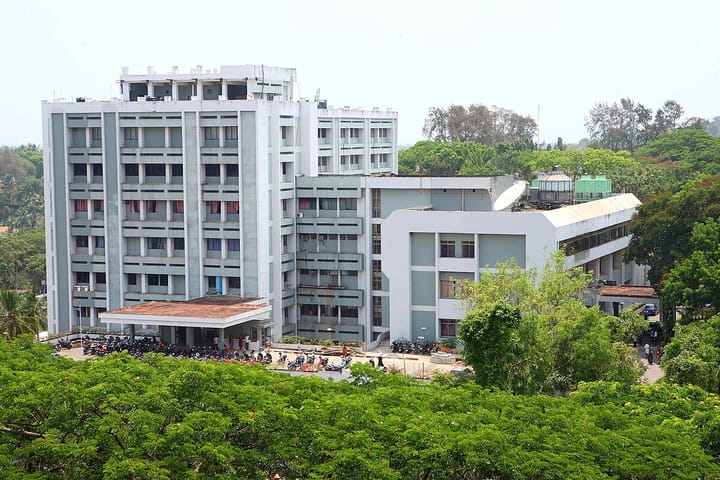Standard of Living
Kerala's remarkable achievements in human development present both a success story and a complex set of challenges for the future. The state has demonstrated that high living standards and quality of life are achievable even with modest economic resources.

Kerala: A Comprehensive Analysis of Living Standards, Health, and Social Development
Introduction
Kerala, India's southwestern coastal state, has long been recognized as an outlier in the Indian development narrative. Despite having a relatively modest per capita income, the state has achieved remarkable social indicators that rival those of developed nations. This comprehensive analysis examines Kerala's standard of living across multiple dimensions, from health and education to food habits and family life, providing insights into what makes the "Kerala Model" unique in the Indian context.
Human Development Index and Comparative Analysis
Kerala's HDI Performance
Kerala stands as India's undisputed leader in human development. Kerala's HDI score of 0.775 clubs it with Mexico (0.781), Cuba (0.764) and China (0.788), placing it significantly ahead of other Indian states. This achievement is particularly noteworthy when compared to India's most populous states, where Uttar Pradesh (0.592) and Bihar (0.551) can be grouped with Zimbabwe (0.550) and Pakistan (0.540).
The state's exceptional performance stems from three key components that define HDI: education, health, and income. While Kerala may not lead in per capita income, its superior performance in education and health metrics creates an overall development profile that surpasses wealthier states.
Life Expectancy and Health Indicators
Kerala's health achievements are particularly impressive. Life expectancy at birth in Kerala is 77 years, compared to 70 years in India, nearly matching developed country standards. What's more significant is that female life expectancy in Kerala exceeds that of the male, similar to that in developed countries, indicating gender parity in healthcare access and outcomes.
This longevity reflects comprehensive healthcare infrastructure, preventive health programs, and cultural practices that prioritize health and wellness. The state's achievement becomes more remarkable when considering that it has accomplished this with relatively modest economic resources compared to wealthier Indian states.
Healthcare System and Medical Coverage
Universal Healthcare Approach
Kerala has implemented one of India's most comprehensive healthcare systems, combining government services with innovative insurance schemes:
Government Healthcare Infrastructure:
- Extensive network of Primary Health Centers (PHCs) and Community Health Centers (CHCs)
- Well-equipped district hospitals and medical colleges
- Specialized tertiary care facilities
- Mobile health units for remote areas
Insurance and Financial Protection:
- Karunya Health Scheme: Covers expensive treatments up to ₹2 lakh for economically weaker sections
- Comprehensive Health Insurance Scheme (CHIS): Provides coverage for government employees and pensioners
- Rashtriya Swasthya Bima Yojana (RSBY): National health insurance for below-poverty-line families
- Ayushman Bharat: Recent addition providing coverage up to ₹5 lakh per family
Preventive Healthcare Excellence
Kerala's approach emphasizes prevention over cure:
- Routine immunization programs with near 100% coverage
- Regular health checkups in schools and communities
- Maternal and child health programs with excellent outcomes
- Community health worker programs (ASHA workers)
- Health education campaigns and awareness programs
Education System and Achievements
Educational Infrastructure and Quality
Kerala's education system represents one of India's greatest success stories:
Literacy and Access:
- Near 100% literacy rate (94% official, effectively universal)
- Gender parity in education achieved
- Comprehensive school network reaching every village
- Free education up to Class X in government schools
Higher Education Excellence:
- Extensive network of colleges and universities
- Professional education in medicine, engineering, and other fields
- Research institutions and technical education
- International standard educational facilities
Cultural Emphasis on Education:
- Education viewed as fundamental right and necessity
- Strong family support for children's education
- Community involvement in educational outcomes
- Educational achievement as source of social prestige
Student Performance and Outcomes
Kerala students consistently outperform national averages:
- Higher completion rates at all educational levels
- Better performance in national standardized tests
- Strong representation in professional courses
- International academic achievements and scholarships
Food Culture and Dietary Patterns
Traditional Malayali Diet
Kerala's traditional diet reflects its coastal geography and cultural diversity:
Staple Foods:
- Rice as the primary cereal, consumed multiple times daily
- Fresh fish and seafood from coastal waters
- Coconut in various forms (oil, milk, grated)
- Variety of vegetables and leafy greens
- Spices including pepper, cardamom, and ginger
Cooking Methods and Practices:
- Coconut oil as the primary cooking medium
- Steam cooking and minimal oil preparations traditionally
- Fermented foods like appam and idli
- Fresh, locally sourced ingredients
- Seasonal eating patterns
Modern Dietary Transitions and Challenges
Contemporary Kerala faces significant dietary transitions that impact health:
Positive Changes:
- Increased awareness of nutrition and balanced diets
- Growing organic food movement
- Better food safety and hygiene practices
- Diversification of food choices
Concerning Trends:
- Increased consumption of alcohol and narcotics.
- Increased consumption of processed and fast foods
- Higher intake of refined sugars and unhealthy fats
- Reduced physical activity combined with calorie-dense foods
- Western dietary influences affecting traditional patterns
Health Challenges: Diabetes, Heart Disease, and Liver Conditions
Diabetes Epidemic
Kerala faces a significant diabetes challenge that contrasts sharply with its other health achievements. The cumulative incidence of Type 2 Diabetes Mellitus in Kerala is 21.9% and the incidence of prediabetes is 36.7%, indicating an epidemic trend that demands urgent attention.
Research shows that Kerala is the most affected state with 53.6% of households having at least one diabetic member, compared to the national average and other states. This high prevalence is attributed to:
Contributing Factors:
- Genetic predisposition among South Indians
- Dietary transitions toward processed foods
- Sedentary lifestyle changes
- Urbanization and reduced physical activity
- Increased longevity revealing age-related conditions
Prevention and Management Efforts:
- Kerala Diabetes Prevention Program (K-DPP)
- Community screening programs
- Public awareness campaigns
- Integration of diabetes care in primary healthcare
- Traditional medicine approaches alongside modern treatment
Cardiovascular Health Concerns
Heart disease represents another significant health challenge:
Risk Factors:
- High prevalence of diabetes contributing to cardiac complications
- Dietary factors including increased salt and oil consumption
- Stress related to modern lifestyle
- Genetic factors
- Tobacco and alcohol consumption
Prevention Initiatives:
- Regular cardiac screening programs
- Public education about heart-healthy lifestyle
- Integration of cardiac care in district hospitals
- Emergency cardiac care networks
- Telemedicine for rural cardiac consultations
Liver Health Issues
Liver-related conditions, particularly alcohol-related liver disease, present significant challenges:
Alcohol-Related Concerns:
- Cultural acceptance of alcohol consumption in some communities
- Quality control issues with locally produced alcohol
- Economic stress leading to excessive consumption
- Limited awareness about safe consumption levels
Hepatitis and Other Liver Conditions:
- Hepatitis B and C prevalence
- Non-alcoholic fatty liver disease increasing with lifestyle changes
- Traditional medicine practices sometimes affecting liver health
- Environmental factors and water quality issues
Obesity and Lifestyle-Related Health Issues
Obesity Trends and Patterns
Kerala is experiencing rising obesity rates, particularly in urban areas:
Urban vs Rural Patterns:
- Higher obesity rates in cities like Kochi, Thiruvananthapuram, and Kozhikode
- Traditional rural lifestyle provides some protection
- Economic prosperity leading to lifestyle changes
- Generational differences in obesity prevalence
Contributing Factors:
- Increased consumption of calorie-dense foods
- Reduced physical activity and sedentary jobs
- Motorized transportation reducing walking
- Processed food availability and marketing
- Stress eating and irregular meal patterns
Health Implications:
- Direct link to diabetes and cardiovascular disease
- Joint and mobility problems
- Mental health impacts
- Increased healthcare costs
- Reduced quality of life
Physical Activity and Exercise Culture
Traditional Kerala had inherent physical activity through:
- Agricultural work and manual labor
- Walking as primary transportation
- Traditional sports like Kalaripayattu
- Physical tasks in daily household management
Modern challenges include:
- Office jobs and reduced manual work
- Dependence on motorized transport
- Limited recreational facilities in some areas
- Time constraints due to work pressures
Positive developments:
- Growing gym and fitness center culture
- Increased awareness of exercise benefits
- Yoga and traditional exercise practices revival
- Government initiatives for sports and fitness
Personal Hygiene and Health Practices
Traditional Hygiene Practices
Kerala's cultural practices have traditionally emphasized cleanliness and hygiene:
Daily Practices:
- Regular bathing, often twice daily
- Lack of usage of antiperspirants causing body odor. Reduced consumption of water and other fluids contribute to this.
- Oral hygiene with traditional methods (neem sticks, etc.)
- Clean clothing and personal grooming
- Hand washing before meals
- Food preparation hygiene
Environmental Cleanliness:
- Home and surroundings cleaning
- Water storage and treatment practices
- Waste management at household level
- Seasonal cleaning and maintenance
Modern Hygiene Awareness and Practices
Contemporary hygiene practices show both improvements and challenges:
Improvements:
- Better understanding of disease prevention through hygiene
- Access to modern hygiene products
- Public health education programs
- Improved sanitation infrastructure
Ongoing Challenges:
- Urban waste management issues
- Water quality concerns in some areas
- Air pollution in industrial areas
- Plastic waste and environmental hygiene
Medical Advice Adoption and Health Discipline
Healthcare Seeking Behavior
Malayalees demonstrate sophisticated healthcare seeking behavior:
Positive Aspects:
- High trust in medical professionals
- Willingness to seek treatment for health problems
- Adherence to prescribed medications
- Preventive health checkup culture
- Health insurance adoption
Cultural Factors:
- Respect for medical expertise and education
- Family involvement in health decisions
- Integration of traditional and modern medicine
- Community health awareness
Challenges in Medical Compliance
Despite high healthcare awareness, certain challenges persist:
Lifestyle Modification Resistance:
- Difficulty changing established dietary patterns
- Resistance to exercise recommendations
- Stress management challenges
- Work-life balance issues affecting health
Traditional vs Modern Medicine:
- Sometimes conflicting advice from different systems
- Self-medication practices
- Delay in seeking treatment for chronic conditions
- Economic factors affecting treatment compliance
Family Life and Social Structure
Family Values and Structure
Kerala families maintain strong traditional values while adapting to modern realities:
Traditional Strengths:
- Extended family support systems
- Respect for elders and their care
- Collective decision-making processes
- Strong emotional bonds and loyalty
- Educational and career support for children
Modern Adaptations:
- Nuclear family trends in urban areas
- Women's increased participation in workforce
- Shared household responsibilities
- Democratic family decision-making
- Balance between tradition and modernity
Work-Life Balance and Quality of Life
Kerala offers a unique work-life balance approach:
Positive Factors:
- Cultural emphasis on leisure and relaxation
- Festival celebrations and family time
- Natural beauty providing stress relief
- Strong community connections
- Relatively less aggressive work culture compared to metro cities
Modern Pressures:
- Economic competition and career pressure
- Migration for work affecting family unity
- Urban lifestyle stress
- Educational competition pressure
- Technology and social media impacts
Children's Education and Success Metrics
Educational Achievement Culture
Kerala's children benefit from a strong educational culture:
Family Investment in Education:
- Significant family resources allocated to education
- High aspirations for children's academic success
- Extra-curricular activity support
- Career guidance and counseling
- Educational travel and exposure
Systemic Support:
- Quality government and private schools
- Scholarship and financial aid programs
- Special support for disadvantaged children
- Integration of technology in education
- Teacher training and quality improvement
Success Patterns and Outcomes
Kerala children show remarkable success patterns:
Academic Performance:
- Consistently high performance in national examinations
- Strong representation in professional courses
- International academic achievements
- Research and innovation capabilities
- Leadership in various fields
Holistic Development:
- Cultural and artistic achievements
- Sports and physical fitness
- Social awareness and responsibility
- Emotional intelligence and maturity
- Global perspective and adaptability
Guest Workers and Social Dynamics
Migration and Demographic Changes
Kerala hosts significant numbers of guest workers from other Indian states:
Worker Demographics:
- Construction workers from Tamil Nadu, Karnataka, and northern states
- Domestic workers from northeastern states
- Skilled workers in various industries
- Agricultural workers during peak seasons
- Service sector employees in urban areas
Integration Challenges and Opportunities:
- Language barriers and communication issues
- Cultural adaptation and social integration
- Access to healthcare and education services
- Housing and living condition concerns
- Economic contribution and community relations
Impact on Local Culture and Society
The presence of diverse communities has created both opportunities and challenges:
Positive Impacts:
- Cultural diversity and exchange
- Economic growth and development
- Labor shortage solutions
- Skill transfer and learning
- Broader perspectives on life and work
Challenges:
- Pressure on infrastructure and services
- Cultural misunderstandings and conflicts
- Competition for jobs and resources
- Strain on traditional community structures
- Integration of different social practices
Happiness Index and Life Satisfaction
Subjective Well-being Indicators
Kerala consistently ranks high in happiness and life satisfaction surveys:
Contributing Factors:
- Strong family and community bonds
- Cultural emphasis on contentment and spiritual well-being
- Natural beauty and pleasant climate
- Access to basic services and healthcare
- Educational opportunities and social mobility
Quality of Life Elements:
- Work-life balance prioritization
- Festival and celebration culture
- Artistic and cultural expression opportunities
- Social security and support systems
- Environmental consciousness and nature connection
Mental Health and Psychological Well-being
Kerala shows both strengths and challenges in mental health:
Positive Aspects:
- Strong family support systems reducing isolation
- Cultural practices promoting mental well-being
- Access to mental health services
- Awareness about psychological issues
- Integration of traditional healing practices
Emerging Concerns:
- Urban lifestyle stress and anxiety
- Academic and career pressure
- Social media and technology impacts
- Economic pressures and uncertainty
- Changing family structures affecting support systems
Future Prospects for Malayalees
Demographic Transitions and Challenges
Kerala faces unique demographic challenges that will shape its future:
Aging Population:
- Rapidly aging population due to low birth rates and high life expectancy
- Reduced population and children working out of state and abroad leaves elderly parent alone at home without proper support.
- Increased healthcare needs and costs
- Workforce shortage in certain sectors
- Pension and social security challenges
- Need for geriatric care infrastructure
Youth Migration:
- Continued emigration of educated youth for better opportunities
- Brain drain affecting local development
- Remittance dependency and economic implications
- Cultural continuity concerns
- Need for local opportunity creation
Economic Development and Sustainability
Future economic prospects require balancing development with sustainability:
Opportunities:
- Information technology and knowledge economy growth
- Tourism and hospitality industry expansion
- Healthcare and medical tourism development
- Renewable energy and environmental technology
- Value-added agriculture and food processing
Challenges:
- Competition from other Indian states
- Infrastructure development needs
- Environmental conservation requirements
- Skill development and education alignment
- Economic diversification requirements
Recommendations for Sustained Development
Health System Improvements
Addressing Lifestyle Diseases:
- Comprehensive diabetes prevention and management programs
- Community-based health promotion initiatives
- Integration of traditional and modern medicine approaches
- Stress management and mental health programs
- Environmental health improvements
Healthcare System Strengthening:
- Continued investment in healthcare infrastructure
- Healthcare worker training and retention
- Technology integration in healthcare delivery
- Research and development in medical sciences
- Public-private partnership in healthcare
Educational Excellence Maintenance
Quality Enhancement:
- Curriculum modernization and skill development focus
- Teacher training and professional development
- Educational technology integration
- Research and innovation promotion
- International collaboration and exchange programs
Equity and Access:
- Continued support for disadvantaged children
- Special education and inclusive practices
- Rural education quality improvement
- Higher education accessibility
- Vocational and technical education expansion
Social and Cultural Preservation
Cultural Heritage:
- Language and literature preservation
- Traditional arts and crafts promotion
- Festival and cultural celebration support
- Inter-generational knowledge transfer
- Cultural education integration
Social Cohesion:
- Community harmony and integration programs
- Inclusive development approaches
- Conflict resolution and social peace initiatives
- Civic engagement and participation
- Social justice and equality promotion
Conclusion
Kerala's remarkable achievements in human development present both a success story and a complex set of challenges for the future. The state has demonstrated that high living standards and quality of life are achievable even with modest economic resources, provided there is sustained investment in education, healthcare, and social development.
The Kerala model offers valuable lessons for other developing regions: the importance of universal education, accessible healthcare, social equity, and cultural values that prioritize collective well-being. However, the state must now navigate the challenges of demographic transition, economic sustainability, and maintaining its social achievements while adapting to global changes.
The future of Malayalees depends on their ability to preserve the strengths of their development model while addressing emerging challenges such as lifestyle diseases, aging population, youth migration, and economic diversification. This requires continued investment in human development, sustainable economic growth, and preservation of cultural values that have made Kerala unique.
As Kerala moves forward, the challenge lies in maintaining its high standards of living while ensuring that development is sustainable, inclusive, and aligned with the aspirations of future generations. The state's experience demonstrates that human development is not just about economic growth but about creating conditions where people can live healthy, educated, and fulfilling lives.
The Kerala story continues to evolve, and its success in addressing current challenges while maintaining its developmental achievements will determine whether the Kerala model remains a beacon of human development for other regions to emulate. The foundation built over decades provides a strong base, but sustained effort and innovative approaches will be necessary to ensure that future generations of Malayalees continue to enjoy high standards of living and quality of life.



